Meet the Advisory Panel
The Advisory Panel currently comprises a group of seven persons, all of whom were chosen for their understanding of the experience of being affected by leprosy.
Zoica Bakirtzief da Silva Pereira (Chair of Advisory Panel)
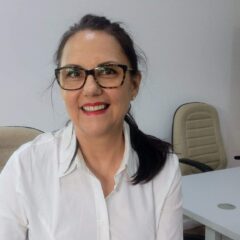 Zoica, Ph.D. in Psychology, was the principal investigator of a LRI sponsored study entitled Promoting inclusion where it matters most: building resilience in individuals and families based on evidence and participatory methods. The study was part of her post-doctoral fellowship at the Federal University of Santa Maria, Brazil.
Zoica, Ph.D. in Psychology, was the principal investigator of a LRI sponsored study entitled Promoting inclusion where it matters most: building resilience in individuals and families based on evidence and participatory methods. The study was part of her post-doctoral fellowship at the Federal University of Santa Maria, Brazil.
She was treated for Hansen’s disease in 2004 while serving as a country representative for American Leprosy Missions but has undergone re-treatment and rehabilitation surgeries in recent years. She was the country coordinator for the Participation Scale Development program and has worked with various ILEP member associations in Brazil, namely NLR, DAHW and AIFO. Zoica facilitated the establishment of several non-profit organisations and was part of the international coordination committee that founded IDEA International in 1994. She also led the establishment of three inclusive vocational rehabilitation associations for persons with disabilities in the states of Sao Paulo and Bahia. In recognition of her innovative program for persons with disabilities, she was selected for the Ashoka Venture Fellowship and the W.K. Kellogg Foundation International Leadership Alliance.
Despite recently shifting from the non-profit sector to a university teaching role, she continues to be closely involved with Hansen’s disease through a Leprosy Research Initiative funded project, NLR’s PEP++ Scientific Steering Committee, reviewing articles for Leprosy Review, and serving as director of IDEA International.
Taslima Akter
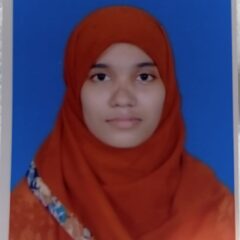
Taslima Akter, was appointed as the Chairperson of the “Bogura District Kushtho and Protibondhi Unnoyon Shongothon” (Bogura Federation) in May 2024. She has also been actively involved as a volunteer with Lepra Bangladesh, where she serves as a Mental Motivator, focusing on mental health initiatives. To this day, she remains connected with Lepra Bangladesh, working tirelessly to develop the Bogura Federation.
She is a passionate supporter for the rights of persons affected by leprosy and disabilities, having personally experienced the challenges they face. Diagnosed with leprosy in 2017, Taslima initially struggled with fear and social stigma. Despite experiencing symptoms like loss of sensation in her toes, she kept her diagnosis a secret, afraid of how her family and community would react.
In 2017, after confiding in her younger sister, she found acceptance within her family. However, after getting married in 2019, she kept the diagnosis hidden from others, including her husband and in-laws, due to the fear of rejection. Now a mother to a daughter, Taslima’s personal experience with leprosy has fuelled her determination to help others facing similar challenges. Her whole family now supports her and gives her the freedom to work for leprosy patients. Today, she is a self-motivated leader, dedicated to improving the lives of persons affected by leprosy and disabilities through her role at the Bogura Federation.
Her journey from fear to empowerment drives her work and commitment to creating a more inclusive society for people with leprosy.
Papa Mamadou Diagne
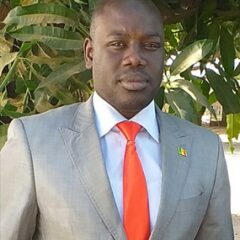 Papa Mamadou was diagnosed with leprosy in his youth and has since dedicated his life to ensuring the rights of persons affected by leprosy. He is committed to promoting the early detection of leprosy and other NTDs, and to facilitating the social inclusion of people affected by leprosy and their families, as well as the educational inclusion of children affected by leprosy.
Papa Mamadou was diagnosed with leprosy in his youth and has since dedicated his life to ensuring the rights of persons affected by leprosy. He is committed to promoting the early detection of leprosy and other NTDs, and to facilitating the social inclusion of people affected by leprosy and their families, as well as the educational inclusion of children affected by leprosy.
Papa Mamadou is the president of the Senegalese Association for the Fight against Leprosy and NTDs (ASCL/MTN). He is also a member of the monitoring committee for operational research on post-exposure prophylaxis, the national committee for coordination of leprosy and NTD activities, and the steering committee of the Senegalese Federation of Associations of Persons with Disabilities (FSAPH).
Trained in the field of social communication, advocacy, social marketing, personal development and community-based rehabilitation, he has often played a vital intermediary role between persons affected by leprosy, local communities, national health authorities, ILEP members, and other civil society organisations in Senegal, to ensure that persons affected receive appropriate care, participate in decisions and access opportunities for economic and social development.
Lilibeth Evarestus
 Lilibeth was brought up and went to school in Imo and Enugu states in south-eastern Nigeria, and later studied law at the University of Lagos. After a year of practical training she was called to the Nigerian Bar as solicitor and advocate of the Supreme Court. She participated in the one-year mandatory national youth service corps programme, serving as a litigation officer at local government level. After an internship and further training in criminal and civil law, she registered her own law firm where she practises as an attorney-at-law.
Lilibeth was brought up and went to school in Imo and Enugu states in south-eastern Nigeria, and later studied law at the University of Lagos. After a year of practical training she was called to the Nigerian Bar as solicitor and advocate of the Supreme Court. She participated in the one-year mandatory national youth service corps programme, serving as a litigation officer at local government level. After an internship and further training in criminal and civil law, she registered her own law firm where she practises as an attorney-at-law.
In addition to being a member of a range of legal associations, including the Bar Association and the Association of Lawyers with Disabilities, she is a certified mediator at the Lagos State alternative dispute resolution board. Lilibeth is a human rights activist, a mother and an open-minded person. She is the national coordinator of Purple Hope Initiative Nigeria, a non-profit association of women and children affected by Hansen’s disease and other NTDs, and a member of Red Aid Nigeria, a sister organisation of the German Leprosy Relief Association.
Al Kadri
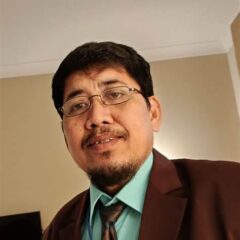
Al Kadri contracted leprosy at the age of 6, which caused him to drop out of school before he had even finished his first year. As he had limited access to health care and information in his village, he did not seek treatment until he already had severe disabilities in his hands and feet. As a teenager, he moved to a leprosy village where he was treated with Dapsone and then spent three years in a leprosy hospital where his hand function was restored through 13 reconstructive surgeries. Attempts to return to his home town in the hope of seeing his family again failed due to stigmatisation and the shame of burdening his family. He finally decided to live in the leprosy village of Jongaya in Makassar, South Sulawesi.
When PerMaTa was founded in 2007, Alkadri was elected chairman for the province of South Sulawesi. He continued informal education at PerMaTa and eventually gave up his job as a parking guide to concentrate fully on strengthening the involvement of, in particular, young people affected by leprosy to become agents of change for a new perspective of leprosy in society.
Alkadri is currently the Chairman of PerMaTa Indonesia. He is also on the board of Yayasan Dedikasi Tjipta Indonesia and advised NLR Indonesia as a technical assistant on meaningful stakeholder engagement from 2013 to 2018.
Faustino Pinto
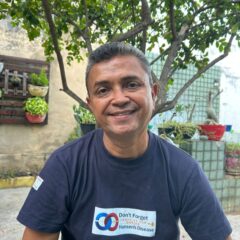
Francisco Faustino Pinto, known as Faustino, is a dedicated advocate for the rights and dignity of persons affected by Hansen’s disease. Faustino’s personal journey with Hansen’s disease began at the age of nine. Diagnosed at 18, he underwent over four years of treatment and emerged as a passionate voice for social justice and health education.
Residing in Juazeiro, Ceará, Faustino is a trained nursing assistant with a background in theology and decades of experience as a social activist. Since 1992, he has been a committed member of MORHAN (Movement for the Reintegration of People Affected by Hansen’s Disease), where he has held numerous leadership roles, including National Secretary of Communication, State Coordinator for Ceará, Vice-Coordinator, and currently, National Coordinator.
Faustino has collaborated with ILEP members such as LEPRA and NHR Brazil on projects addressing human rights, accessibility, disability prevention, and cultural initiatives for over a decade. He has also worked with Brazil’s Ministry of Health and PAHO on national campaigns and projects aimed at eliminating Hansen’s disease.
A former State and Municipal Health Councilor, Faustino has championed the rights of marginalised communities through initiatives like the Itinerant Social Ombudsman Project and the Commission of Law 11.520. Through his membership in the Global Partnership for Zero Leprosy Leadership Team and ILEP Advisory Panel, Faustino is committed to advancing the global fight against Hansen’s disease and uplifting the dignity of those affected.
Maya Ranavare
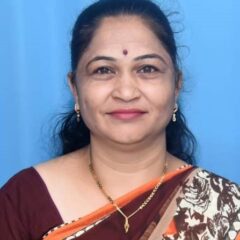 Maya was born and raised in a leprosy colony. She was diagnosed with leprosy at the age of six and struggled for survival and education. The discrimination and isolation she experienced had a great impact on her life and resulted in her commitment to working for the rights of persons affected by leprosy, their empowerment and welfare.
Maya was born and raised in a leprosy colony. She was diagnosed with leprosy at the age of six and struggled for survival and education. The discrimination and isolation she experienced had a great impact on her life and resulted in her commitment to working for the rights of persons affected by leprosy, their empowerment and welfare.
Maya is the Chair of Sakshi Vikas Sanstha, Treasurer of APAL, State Coordinator of the Human Rights Commission, a key member of the District Leprosy Coordination Committee and an advisor for various livelihood projects in India. She has contributed to the Human Right Commission reviewing and ruling many cases in favour of persons affected, as well as in obtaining a special maintenance allowance from Municipal Corporations for more than 3,000 people affected by leprosy.
She has received various rewards, including Sasakawa India Leprosy Foundation’s ‘Raising to Dignity Award’ and R.K. Mehta Charitable Trust’s ‘Social Service Award’. In 2014, she was cast in a documentary called “The unsung Hero” Meet Maya, a remarkable person. Maya’s life mission is to work towards a world free from leprosy, stigma and discrimination.